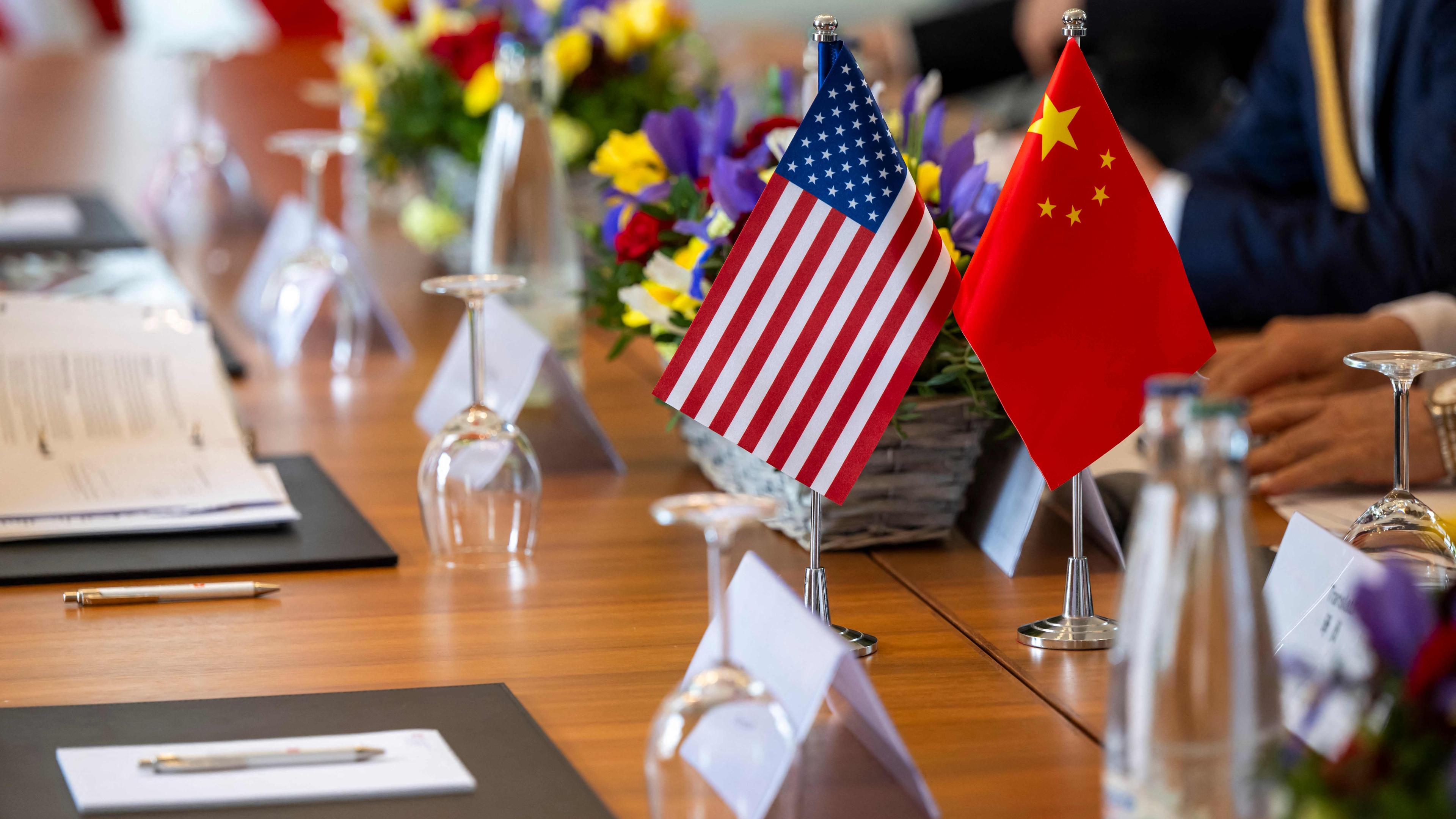Customs talks in London: Meeting « with strong handshake »?

With new trade talks, China and the United States want to get closer to a solution in their bitter customs dispute. Representatives of both sides met for negotiations in London, as Chinese state media reported.
US President Donald Trump’s economic advisor expects a quick breakthrough. « I assume that it will be a short meeting with a strong handshake, » Kevin Hassett told CNBC.
In London, the focus was therefore less on mutual tariffs, but the Chinese export restrictions for rare earths. The goal is a fundamental agreement on this question, said Hassett. The People’s Republic controls around 90 percent of the global market for these raw materials and for special magnetic materials.
The US government assumes that Beijing quickly loosens the export restrictions after an agreement. In return, the United States would also return its export controls.
How drastically the consequences of the dispute are, new figures from Chinese customs show: Accordingly, the trade between the two largest economies in the world broke in May.
Who speaks to whom about what?
It was not excluded that the talks in London will continue this Tuesday. Vice Prime Minister He Lifeng takes part for China. President Donald Trump announced in the run-up to the talks for the United States that US Finance Minister Scott Bessent was part of the delegation.
According to Trump, it is about discussing subtleties of the common trade agreement. However, export controls on raw materials on the part of China or restrictions on the sale of important technology from the United States to China are likely to focus.
How the trade has developed
As stated from the communications of the authority in Beijing, exporting and imports in the trade with the USA, as in April, decreased clearly. In May, exports in US dollars were calculated by 34.5 percent compared to May 2024, while imports lost by 18.1 percent.
Overall, China’s economy was able to increase its exports in May thanks to the increased exports to other regions, including Germany.
Topics on the agenda
China and the United States had spoken to each other in Geneva in mid -May for the first time since the escalation in the customs dispute. At that time, both sides agreed to temporarily lower their tariffs for 90 days. In April, US President Trump increased the surcharges on goods from China to up to 145 percent. With counter -tariffs, Beijing moved to imports from the USA to 125 percent and imposed export controls, including to certain rare earths.
Beijing: E-trucks are the latest threat to oil demand
These are raw materials that industry needs, for example, for electric motors and sensors. China dominates the world market for why the export restrictions on companies had triggered concern worldwide.
Trump has been a tough trade policy course against China since taking office.
Beijing, on the other hand, could address the US restrictions on the sale of important technology products to China. The People’s Republic is still dependent on computer chips or important components in the aviation industry.
Pay a phone call?
US President Trump and Chinese state and party leader XI Jinping had agreed the meeting on Thursday on a phone call. Trump’s spokeswoman Karoline Leavitt said on US television that China had to comply with his side of the agreement. This could make the way for a more comprehensive agreement.
After the telephone call of the heads of state, China had rather cautiously commented and the United States warned to adhere to the mutual agreements of the agreement. The US side should objectively evaluate the progress made and take back its negative measures against China, Beijing demanded.
Effects on global economy
The trade conflict of the two states keeps the global economy in suspense. Trump has been a tough trade policy course against China since taking office. Despite the agreed agreement on a customs break in Geneva, the tone recently became rougher again – and the underlying disagreements are by no means solved.
The United States imported significantly more than they export. China, on the other hand, drives up its economic engine with exports and imported – also because of the weak demand in the People’s Republic. Trump wants to reduce this trade deficit with the help of higher tariffs and thus also strengthen domestic production. However, many economists warn that Trump’s additional import fees in the United States should lead to higher prices and less growth in the medium term.
Trump’s problem: Commercial deficit with China
According to the government, the United States exported in 2024 worth a good $ 143 billion to China, in return there were goods worth $ 439 billion to the United States. This results in a trade deficit of almost $ 300 billion.
Trump has repeatedly referred to “tariffs” as his favorite word. He has announced, threatened or already implemented numerous additional import fees. In addition to a new penalty tax of ten percent of the goods value to almost all imports, he has also announced specific, higher tariffs on imports of many countries. Large trading partners such as China and the EU are also affected.








